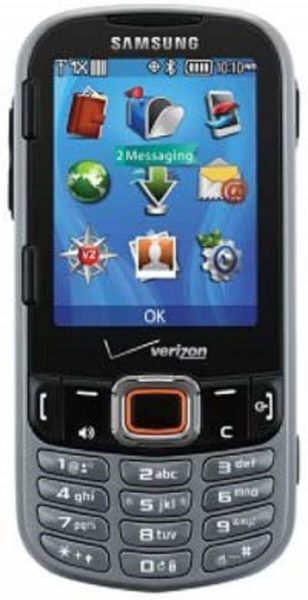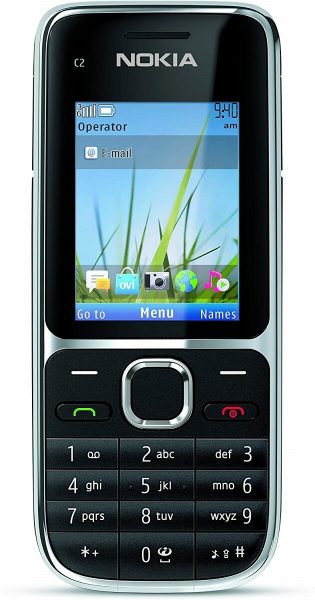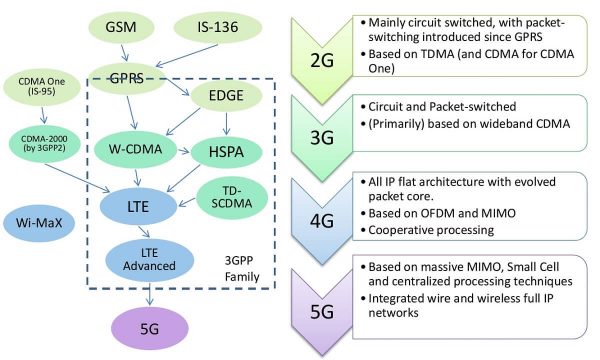Everyone is mobile these days but you can still experience situations when you have no mobile coverage in certain parts of the world. And, no, not because there is no mobile network but because there are still two main standards for mobile networks – CDMA and GSM, which are largely incompatible. Not many people know the differences between CDMA vs GSM. In this article, we’ll discover their key differences as well as advantages and disadvantages.
Code Division Multiple Access (CDMA) and Global System for Mobile Communication (GSM) are two variations of one and the same technology but still divide the world into two parts – countries that have adopted the CDMA technology and countries where the GSM networks prevail.
Actually, the debate about the advantages and disadvantages of CDMA vs. GSM is about to end with the gradual introduction of 5G networks, a technology that is designed, among other things, to finally merge the two standards. We nonetheless give you a detailed overview of the origins of CDMA and GSM, the differences between the two mobile network standards and how CDMA vs. GSM compare.

What Is CDMA?
The Code Division Multiple Access is a technology widely used in the United States, Russia and some parts of Asia. The CDMA technology does not use a SIM card to identify a user on the network. The phone device is added to a whitelist by the carrier company and then uses their bands to make a connection.
Initially, consumers were not allowed to use a CDMA phone, manufactured for one telephone carrier, into the network of another mobile network operator. With the emergence of the LTE networks, users get access to SIM-enabled CDMA phones, which in turn allows for switching between CDMA phone companies. Simply put, you can use a CDMA phone with different CDMA providers but mostly on LTE networks.

As far as the underlying CDMA technology is concerned, it allows users to access the entire spectrum of bands available, which increases the network’s capability to handle more connections at a time. The technology is using a pseudo-randomized digital sequence to encode your conversation, thus protecting the content of your call by making voice data available only to the devices that take part in the conversation.
What Is GSM?
If you look at the differences between GSM vs. CDMA from a consumer point of view, you will find that the major difference is that the GSM networks use SIM cards to store your data and enable users to make calls.
The SIM card holds data about the services available to the network subscribers in the same way a whitelist of CDMA phone numbers is working. You can easily change the GSM networks by simply getting a card by another GSM service provider and although some carriers do sell locked GSM phones you can switch providers more easily compared to CDMA networks, especially when travelling abroad.

GSM networks rely on Time Division Multiple Access technology to transmit your voice conversations. TDMA assigns time slots to multiple conversation streams, then alternates them in sequence and switches between one conversation and another in short intervals. Data is being transmitted during these intervals and the network knows who are online by checking the available and connected SIM cards.
CDMA Vs GSM — Key Differences
The two image above show a two basic phone models by Samsung and Nokia, respectively. Both are able to do broadly the same things and have similar functionality but they cannot be used interchangeably until you have a dual CDMA and GSM functionality embedded into them.

That is because the CDMA and the GSM mobile networks share the same technological origins but use different methods for making calls and enable devices to transmit data. The basic technology is all the same but for example you cannot simultaneously transmit or receive data and voice over CDMA. There is way to do that but it requires an additional Wi-Fi connection.
Below, we have compiled a list of major features that make CDMA vs. GSM so similar and different in the same time.
Technology
CDMA uses the entire spectrum of bands and code division technology (CDMA) while the GSM operates through both Time Division Multiple Access (TDMA) and Frequency Division Multiple Access (FDMA) for user and cell separation.
GSM connections are SIM-specific while CDMA connections are device-specific.
Band Spectrum Frequencies
The CDMA network uses the frequency spectrum of CDMA 850 to CDMA 1900 to operate. The GSM network is using the frequency spectrum between GSM 850 MHz and GSM 1900 MHz to operate.
A network tower in each GSM cell serves a phone located in its area of coverage while the CDMA establishes a physical channel and a dedicated code for each device in the network.
Also, CDMA covers larger areas with fewer towers, which makes the technology popular in countries with vast rural areas.
Transfer Of Data
CDMA offers faster data transfer rate as compared to GSM. It uses the EVDO data transfer technology that offers maximum download speeds of 2 mbps while the EDGE technology the GSM uses offers maximum download speeds of 384 kbps.
Voice And Data Transmission
When you compare CDMA vs. GSM, you need to be aware that the GSM technology enables transmission of voice and data in the same time while the CDMA technology cannot do that.
Global Coverage
GSM networks are available in more than 200 countries worldwide, which makes the GSM a more popular technology as compared to CDMA.
As we said, CDMA is in the wide use mostly in North America, Russia and Asia but you should be aware that countries like the United States and Russia operate both CDMA and GSM networks. GSM networks operate alongside CDMA carriers in virtually any country where CDMA is the prevailing technology.
Nonetheless, roaming for CDMA phones might be a problem in some locations while using a GSM phone abroad is rarely a problem as carriers as a rule have contracts for coverage anywhere in the world.
Call And Data Security
Comparing CDMA vs GSM is also about security as mobile phone calls and mobile data transfer is now part of our everyday personal and business lives.
The CDMA offers higher level of security in comparison to GSM networks and the CDMA signal is hard to even detect without professional equipment involved in targeted attack. Overall, calls on CDMA networks are considered more secure unless someone specifically sniffs on you.
Phone Radiation
GSM phones expose their users to higher radiation levels. They emit close to 30 times more radiation as compared to CDMA devices. That is so because GSM emits continuous wave pulses while CDMA phones do not need to emit wave pulses to operate.
Advantages And Disadvantages Of CDMA Vs GSM
You can easily spot some advantages of GSM over CDMA and vice versa. After looking at the list above, but there are also certain business and engineering advantages and disadvantages associated with each technology.
Let’s take a look at those business benefits and downsides of both CDMA and GSM.
Advantages Of Using CDMA
- Full utilization of fixed frequency spectrum
- Flexible resource allocation
- Large signal bandwidth reduces multipath fading
- Unlimited number of users
- Indecipherable code
- Changing cells does not affect signal
- The CDMA channel is nominally 1.23MHz wide.
Disadvantages Of Using CDMA
- Higher sophistication
- Services quality decreases with increasing number of users
- Limited upgrade options
- Lack of international roaming
Advantages Of Using GSM
- Better spectrum efficiency
- Lower cost of equipment
- High-quality voice calls
- International roaming
- Compatible with Integrated Services Digital Network (ISDN)
Disadvantages Of Using GSM
- Limited number of users per cell tower
- Questionable security
- Slower data transfer
As you can see, comparing CDMA vs. GSM networks uncovers multiple advantages and disadvantages of these technologies and this list is barely complete.
In any case, the differences are hardly noticeable to the average user. Unless you leave for a location where a CDMA or GSM phone does not work because of incompatibility with the local mobile network.
Final Thoughts
You can compare CDMA vs. GSM on many levels. But, you will find one of the technologies offers certain advantages over the other.
The truth is that GSM technology has conquered the world with over 80 percent of global users relying on GSM. This is in comparison to 24 percent who use CDMA.
The fifth generation of mobile networks will put an end to the CDMA vs. GSM divide and will create a mobile ecosystem where both the standards will work seamlessly and in synchrony.
